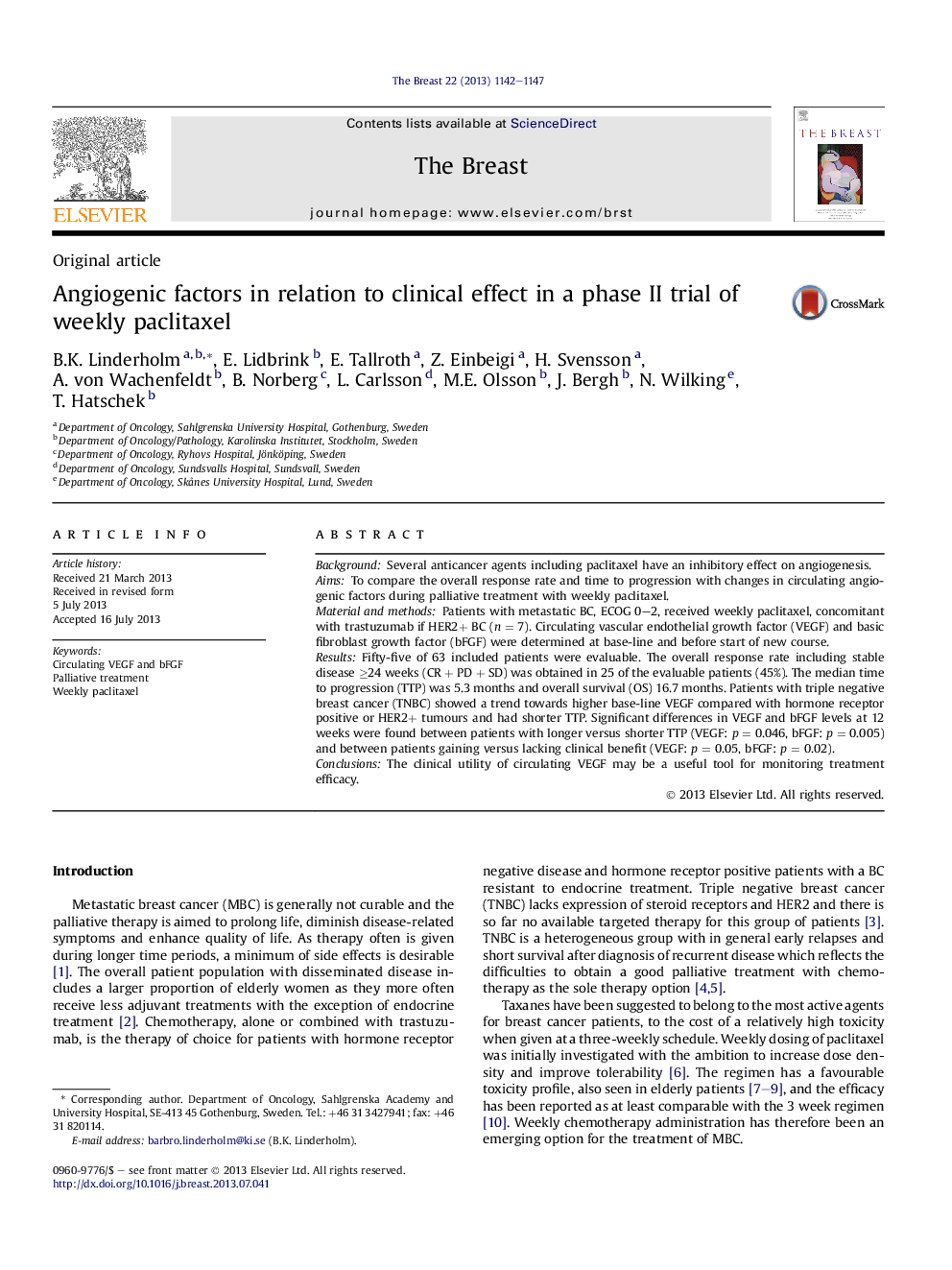| Article ID | Journal | Published Year | Pages | File Type |
|---|---|---|---|---|
| 6170171 | The Breast | 2013 | 6 Pages |
BackgroundSeveral anticancer agents including paclitaxel have an inhibitory effect on angiogenesis.AimsTo compare the overall response rate and time to progression with changes in circulating angiogenic factors during palliative treatment with weekly paclitaxel.Material and methodsPatients with metastatic BC, ECOG 0-2, received weekly paclitaxel, concomitant with trastuzumab if HER2+ BC (n = 7). Circulating vascular endothelial growth factor (VEGF) and basic fibroblast growth factor (bFGF) were determined at base-line and before start of new course.ResultsFifty-five of 63 included patients were evaluable. The overall response rate including stable disease â¥24 weeks (CR + PD + SD) was obtained in 25 of the evaluable patients (45%). The median time to progression (TTP) was 5.3 months and overall survival (OS) 16.7 months. Patients with triple negative breast cancer (TNBC) showed a trend towards higher base-line VEGF compared with hormone receptor positive or HER2+ tumours and had shorter TTP. Significant differences in VEGF and bFGF levels at 12 weeks were found between patients with longer versus shorter TTP (VEGF: p = 0.046, bFGF: p = 0.005) and between patients gaining versus lacking clinical benefit (VEGF: p = 0.05, bFGF: p = 0.02).ConclusionsThe clinical utility of circulating VEGF may be a useful tool for monitoring treatment efficacy.
